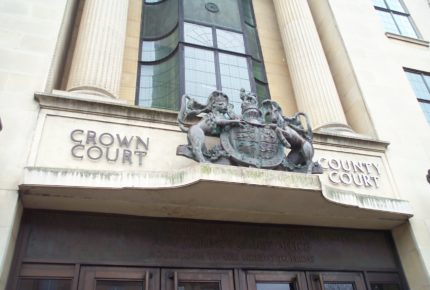

Confiscation proceedings are a legal mechanism designed to ensure that individuals do not benefit financially from their criminal activities. These proceedings typically follow a criminal conviction or charges, and they are governed by the Proceeds of Crime Act 2002 (POCA), a cornerstone of English law concerning financial crime. Facing confiscation proceedings for the first time can be a daunting and complex experience. If you find yourself in this situation, having a clear understanding of what this legal process entails, your rights, and your obligations under English law is essential. You are not alone in your confusion, and this article is here to provide you with a comprehensive overview of what it means to be subject to confiscation proceedings in the United Kingdom.
What are confiscation proceedings?
Confiscation proceedings in England and Wales are governed by POCA. This comprehensive piece of legislation provides the legal basis for identifying, assessing, and recovering the financial benefits derived from criminal conduct. POCA sets out the procedures, principles, and definitions that guide how confiscation proceedings are carried out.
Confiscation proceedings are not punitive in the traditional sense; rather, they are primarily concerned with stripping offenders of the financial benefits acquired through criminal conduct. The underlying goal is to deprive individuals of the ‘ill-gotten gains’ and to prevent them from enjoying the fruits of their unlawful activities.
These proceedings typically follow a criminal conviction or guilty plea, meaning that you may find yourself subject to confiscation proceedings after being found guilty of a criminal offence. Understand that confiscation proceedings are a separate legal process from the criminal trial itself and deal specifically with the financial aspects of criminal activity.
If you are facing confiscation proceedings for the first time, knowing this can help you understand when and how confiscation proceedings might come about.
What important terms do I need to understand when facing confiscation proceedings?
Confiscation proceedings involve a unique set of terms and concepts that are essential to understand in order to navigate this legal process effectively. Some of the main ones include:
- Benefit: In the context of confiscation proceedings, ‘benefit’ refers to the financial gains obtained through criminal activity. It encompasses any property or advantage derived directly or indirectly from the unlawful conduct. Importantly, this benefit is subject to confiscation.
- Recoverable Amount: The ‘recoverable amount’ is the specific sum of money that a defendant is required to pay following confiscation proceedings. It represents the value of the benefit obtained from criminal conduct that the court determines can be realistically recovered from the defendant.
- Confiscation Order: A ‘confiscation order’ is a formal legal order issued by the court that specifies the exact amount the defendant is obligated to pay as the recoverable amount. This order sets out the terms and conditions for repayment, including deadlines and methods of payment.
- Available Amount: The ‘available amount’ is a critical concept in confiscation proceedings. It represents the total value of the defendant’s assets that can be used to satisfy the recoverable amount specified in the confiscation order. It is calculated by considering the defendant’s assets, liabilities, and any other relevant financial information.
- Default Sentence: If a defendant fails to comply with the terms of a confiscation order, a ‘default sentence’ may be imposed by the court. A default sentence is a custodial sentence imposed to punish the defendant for non-payment or insufficient payment of the recoverable amount.
What is the process for confiscation proceedings in the UK?
Confiscation proceedings in English law follow a structured process that involves various stages, each with specific roles and responsibilities. If you are facing confiscation proceedings for the first time, you will benefit to know how this process unfolds. Below are the key steps involved in confiscation proceedings and what you can expect during each stage:
- Post-Conviction/Charge: Confiscation proceedings typically commence after a defendant has been convicted of a criminal offence or when criminal charges have been brought against them. Note that confiscation proceedings are distinct from the criminal trial itself. They focus exclusively on the financial aspects of the defendant’s criminal activities.
- Commencement: Confiscation proceedings begin with the prosecution notifying the court of their intention to initiate the process following a conviction or charges.
- Assessment of Benefit: Once the confiscation proceedings have started, the court’s attention turns to determining the financial benefit derived from the criminal conduct. This assessment forms the foundation for calculating the recoverable amount. The prosecution is responsible for presenting evidence to support their estimate of the defendant’s benefit from the criminal activity. This evidence can include financial records, assets acquired, or any other relevant information. As the defendant, you have the right to challenge the prosecution’s assessment of benefit. This may involve presenting evidence to dispute the claimed benefit or showing that you have already paid back some of the proceeds.
- Determining the Recoverable Amount: Once the benefit has been assessed, the court calculates the ‘recoverable amount,’ which represents the sum the defendant is obliged to pay. The court takes into account various factors in this determination, including the defendant’s financial situation. The court considers the defendant’s assets (property, savings, investments, etc.) and liabilities (debts, obligations) to ascertain the recoverable amount. The court ensures that the recoverable amount is realistically achievable, taking into account the defendant’s financial capacity. It should not be set at an amount that the defendant cannot reasonably pay.
- Issuing a Confiscation Order: The court issues a “confiscation order” specifying the exact amount that the defendant must pay as the recoverable amount. This order outlines the terms and conditions for repayment, including deadlines and methods of payment. A confiscation order is legally binding, which means the defendant is legally obligated to comply with its terms and there will be consequences if they do not.
What happens if you fail to comply with a confiscation order?
Failure to comply with a confiscation order can have serious legal consequences. If you do not comply with the terms of the confiscation order, the following actions and consequences may occur:
- Default Sentences: One of the most common consequences of non-compliance is the imposition of a ‘default sentence.’ A default sentence is a custodial (prison) sentence that is imposed on the defendant for failing to pay the confiscation order amount or for making insufficient payments.
- Additional Financial Penalties: In addition to the default sentence, the court may impose additional financial penalties, fines, or interest on the outstanding amount. These penalties can further increase the financial burden on the defendant.
- Seizure of Assets: If the defendant has not paid the recoverable amount, the court may order the seizure and sale of the defendant’s assets or property to satisfy the debt. This may include selling property, vehicles, bank accounts, investments, or any other valuable assets owned by the defendant.
- Extended Prison Sentence: If the defendant refuses to pay the confiscation order, the default sentence can be substantial and lead to an extended period of incarceration. The length of the default sentence may depend on the outstanding amount and the circumstances of the case.
- Recouping Debts: Authorities may continue to pursue the defendant for the outstanding debt, even after their release from prison. This could include garnishing wages or other sources of income to recover the owed amount.
- Impact on Credit Rating: Failure to comply with a confiscation order can have a detrimental impact on the defendant’s credit rating, making it difficult to access loans or credit in the future.
Note that the defendant’s obligation to satisfy the confiscation order does not expire over time. Even if the defendant serves a prison sentence for non-payment, they will still be required to pay the outstanding amount upon release.
Given the serious consequences of non-compliance with a confiscation order, it is crucial for individuals subject to such orders to seek legal advice and explore all available options for meeting their financial obligations. Defendants may also have the opportunity to challenge the confiscation order if they believe it is unjust or inaccurate. This should be done with the assistance of a solicitor who specialises in confiscation proceedings.
Where to get more help
If you or someone you care about are confronted with confiscation proceedings for the first time, or if you have already been issued a confiscation order, seeking guidance from a seasoned and impartial criminal defence solicitor is critical. Engaging the services of a solicitor ensures that you receive expert advice regarding the proceedings, safeguarding your rights and mitigating the potential impact on your life. Contact the team at Stuart Miller Solicitors today to get the support you need during confiscation proceedings.
OUR COMMITMENTS TO YOU:
-
Responsive
A legal expert will consult you within 24 hours of making an enquiry.
-
Empathetic
We will always treat you with trust, understanding and respect.
-
Specialised
Your case will be handled by an expert who specialises in your type of offence.
-
Proactive
We will take early action to end proceedings as soon as it is practically and legally possible to do so.
-
Engaged
You will be kept updated on your case at all times. We will provide a named contact available to answer your questions.
-
Caring
We understand this is a difficult and stressful time for you and your family. Our team will support you every step of the way.
-
Tenacious
We will never give up on your case. We fight tirelessly to get you the best possible outcome.

